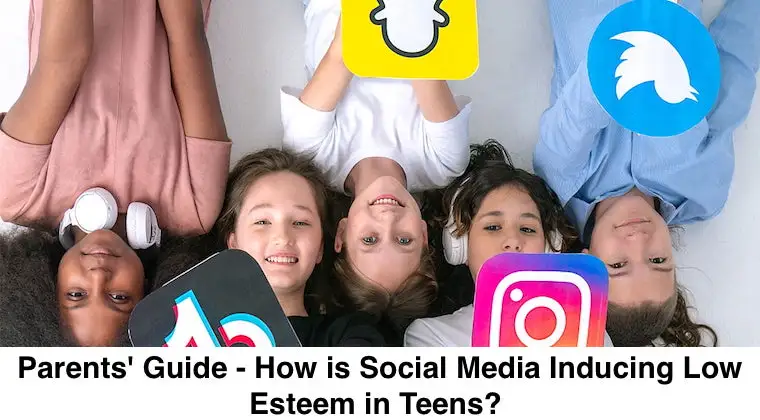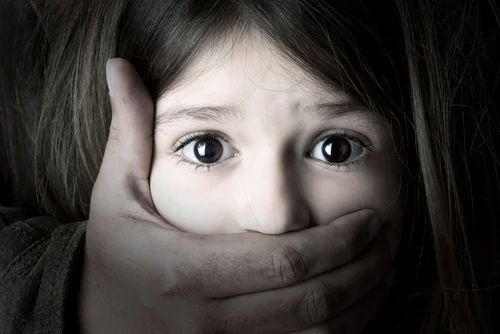+1 845 259 2974 (11 a.m to 7 p.m CST)
Parents' Guide - How is Social Media Inducing Low Esteem in Teens?

Social media is an integral part of most teenagers' daily lives, offering them a platform to connect with peers, share experiences, and express themselves. While it provides valuable opportunities for social interaction, it also poses challenges, especially concerning self-esteem. Teens are often exposed to highly curated images of perfection, which can lead to unfavorable comparisons and feelings of inadequacy.
The constant pressure to gain likes, shares, and positive comments can boosting their confidence when the response is favorable and plunge them into self-doubt when it is not. Parents are increasingly concerned about the impact of these platforms on their children's mental health, leading them to consider measures like parental controls to help manage their teens' social media use and protect their self-esteem.
Understanding Self-Esteem in Teens
Self-esteem is generally understood as how much value people place on themselves and how worthwhile they feel. It's a deeply personal judgment that can affect numerous aspects of one's life.
Factors Influencing Teen Self-Esteem
Several factors can impact a teenager's self-esteem, both positively and negatively:
- Family Dynamics: The support and communication style within a family significantly influence how teens view themselves. Positive reinforcement and understanding can boost self-esteem, while criticism and neglect can diminish it.
- Peer Relationships: Teens are particularly sensitive to their peers' opinions. Strong friendships and social inclusion can enhance self-esteem, whereas bullying or exclusion can severely damage it.
- Academic Performance: Success or struggles in school can play a crucial role. Academic achievements can raise self-worth, while difficulties can lead to feelings of inadequacy.
- Physical Appearance: During adolescence, physical changes and societal standards can heavily impact self-esteem. Positive body image supports high self-esteem, whereas dissatisfaction with one's appearance can lead to low self-esteem.
- Social Media Influence: The virtual environment can be a harsh realm of comparison, where the desire for approval and fear of negative judgment are magnified. Social media often presents an idealized version of life, making teens feel they fall short.
Understanding these factors helps parents and caregivers provide better support to teens navigating the challenging waters of self-esteem during their formative years.
Impact of Social Media on Teen Self-Esteem
Social media's influence on teenagers can be profound and varied, affecting their self-esteem in both positive and negative ways.
Positive Effects of Social Media:
- Connection and Community: Social media enables teens to connect with peers who have similar interests, which can enhance their sense of belonging and community.
- Self-expression and Identity: Platforms provide a space for creativity and personal expression, helping teens shape their identity and gain confidence in who they are.
Negative Effects of Social Media:
- Unrealistic Comparisons: Constant exposure to idealized images and lifestyles can lead teens to make unrealistic comparisons, which often leads to dissatisfaction and low self-esteem.
- Cyberbullying and Peer Pressure: Social media can also be a venue for bullying and peer pressure, exacerbating feelings of isolation and anxiety.
Case Studies and Statistics:
- A study published in 2021 found that 60% of teens feel pressure to post content that makes them look good to others.
- Research indicates that excessive use of social media can lead to an increased risk of depression, especially if interactions are negative or if teens spend too much time on these platforms.
These insights highlight the dual impact of social media, underscoring the need for balanced usage to protect and enhance teen self-esteem.
Role of Parental Controls in Managing Social Media Use
Parental controls are tools and software designed to help parents monitor and manage their children's use of electronic devices and online platforms. These controls can be crucial in safeguarding adolescents from the potential harms of excessive social media use.
What are Parental Controls?
Parental controls encompass a range of features:
- Content Filters: Block access to inappropriate content based on categories or specific websites.
- Usage Controls: Set limits on how much time children can spend on certain apps or sites.
- Monitoring Tools: Allow parents to see what sites and apps their children are using and how often.
- Privacy Settings: Help manage who can contact their children and who can see their posts and personal information.
How Parental Controls Can Help Manage Exposure
Implementing parental controls offers several benefits:
- Limiting Time: They can limit the amount of time teens spend on social media, reducing the risk of exposure to harmful content and interactions.
- Reducing Negative Impact: By controlling access to certain types of content, parents can prevent their teens from encountering unrealistic standards and cyberbullying.
- Encouraging Healthy Habits: These tools help promote a balance between online activities and offline life, encouraging teens to engage more in the real world.
By strategically using parental controls, parents can help mitigate the negative effects of social media while allowing their teens to enjoy its benefits safely.
Strategies for Parents to Protect Thier Kids
To mitigate the effects of social media on teen self-esteem, parents can adopt several targeted strategies:
Open Communication About Social Media Use
Creating open lines of communication is crucial. Parents should:
- Discuss the Benefits and Risks: Engage in regular conversations with your teen about the advantages and potential downsides of social media usage. This can make them aware of both the opportunities and the traps.
- Encourage Sharing: Foster a safe environment where teens feel comfortable discussing their online experiences and feelings. This openness helps teens feel supported if they encounter problems.
Setting Realistic Expectations About Social Media
It's important to set realistic views about online life:
- Debunk Perfection: Help your teen understand that images and lifestyles portrayed on social media are often highly curated and not an accurate reflection of real life.
- Promote Critical Thinking: Teach your teen to critically analyze the content they encounter online. Understanding that much of what is posted is manipulated can reduce the pressure to measure up.
Encouraging Real-Life Interactions
Balancing online and offline life is vital:
- Balance Screen Time with Face Time: Encourage your teen to participate in activities that require in-person interactions, such as sports or social clubs. This not only reduces screen time but also enhances social skills.
- Promote Offline Interests: Support your teen in pursuing interests outside of the digital world, whether it's music, art, or sports. Developing skills and achievements in these areas can significantly boost self-esteem and provide a fulfilling counterbalance to online activities.
By employing these strategies, parents can help their teens navigate social media in a way that supports healthy self-esteem and promotes a well-rounded personal development.
Navigating the challenges of social media is crucial for today's teens, whose self-esteem can be greatly impacted by their online experiences. By maintaining open communication, setting realistic expectations about social media, and encouraging meaningful offline interactions, parents can play a pivotal role in helping their teens develop a healthy relationship with these platforms.
Employing parental controls can also aid in managing online exposure, ensuring a safer and more balanced digital environment. Ultimately, proactive and supportive involvement in your teen’s digital life is essential in fostering their overall well-being and self-confidence. This guide aims to empower parents with the knowledge and tools needed to guide their teens through the complex world of social media, positively affecting their self-esteem and personal growth.
























